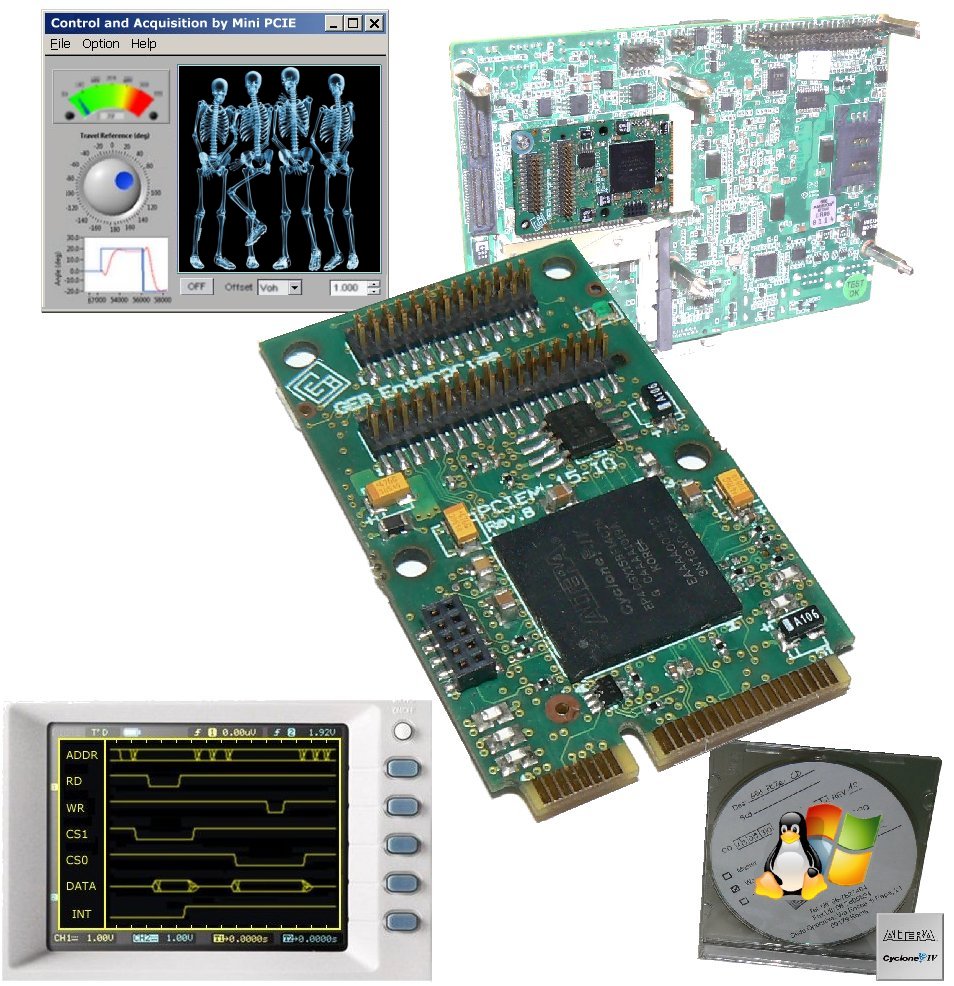Mini PCIE enhanced FPGA Board
Mini PCIE PGA board targetted to emedded PC expansion allows very simple fpga programming using FEWE
Mini PCI Express FPGA board meet many customized Interface requirements
Rome, 25 April 2014,
GEB Enterprise is delivering the mini PCI Express FPGA board I/O board in an enhanced version, equipped with the the Altera Cyclone IV GX EP4CGX30BF14C6N fpga that make available 30.000 logic and 80 DSP blocks at an affordable price.
When connected to an embedded PC motherboard, it adds FPGA programmable high bandwidth I/O and DSP capability at a low cost, making it ideal for equipments in many fields of application, such as electro-medical, automation, sonar, meteo radar, performances and errors rate analysis, video and data players and recorders.
The Mini PCIe form factor is ideal for many kinds of applications, a mini PCI Express slot has been present on many embedded PC motherboards. It’s a simple way to allow I/O connections to your custom equipments through its two I/O connectors that bring out 53 LVTTL FPGA I/O pins and 3 clocks.
The FPGA has a PCI Express GEN1X1 endpoint interface, allowing the PC to take full advantage of the FPGA I/O pins. The software can manage the equipment driving directly the mini PCIe I/O pins through the target interface at a speed of some Mbytes/sec, rather than when a highest speed would be needed: the mini PCIe board can become master acceding to the virtual memory at some hundreds of Mbytes/Sec.
You can use the mini PCIe in your application in several way.
- Check the available fpga systems, that you need can be already available.
- Ask to customization service.. when some boards will be needed the customized FPGA system can be supplied free of charge.
- Use the Fpga Easy Web Editor FEWE. This tool has been allowing the customers without FPGA know how and dedicated tools to customize their application using the preferred web browser. Ask to book one of one hundred free licenses available.
- If you have an expertise on the FPGA field you can do every things: using the Altera QSYS tools, some pre-created structures supplied inside a Development Kits and the free Altera IP library, you’ll be able to build a complete custom FPGA system in few hours.
Independently of the way chosen to get the fpga programming files you would pay attention to the available drivers, targeted on both MS Windows and Linux OS, which have been making available the Application Program Interface (API) able to read/write the I/O registers, handling interrupts, manage of the SGDMA in virtual memory.


